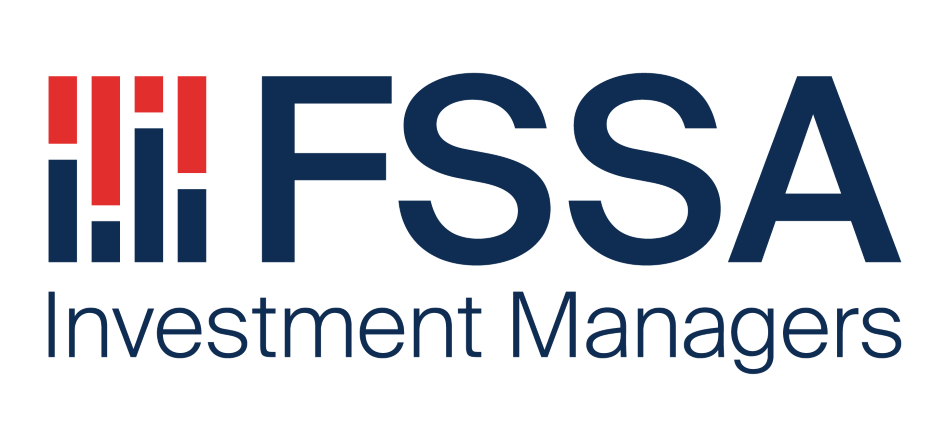Showing 1 to 30 of 30 results.
The investment world conflates what ‘absolute return’ and ‘total return’ actually mean – and throwing in the latest buzzword ‘unconstrained’ has only made things worse. Our infographic cheat sheet demystifies some common terms used to describe fixed income investment approaches.
Learn about investing in fixed income today. First Sentier Investors' on-the-ground teams share investment ideas uncovered in developed and emerging markets.
People are are at the heart of our success as a leading global asset manager
Global investment manager, First Sentier Investors, today announced changes to its investment capabilities within Australia.
Benchmark Relative. Absolute Return. Total Return? Global unconstrained? Here our global fixed income team demystify some of the common language used to describe approaches to fixed income investing – explaining the differences – and how they can be applied to various objective-based strategies within a broader portfolio.
We are entering a new era. The year 2024 will be unpredictable and clouded by many uncertainties. It will be marked by geopolitical risks, the ongoing taming of the inflation beast, and how the US Presidential election will impact markets.
First Sentier Investors is the world-leading provider of specialist investment capabilities. Discover how we provide research-led active investment management.
The well-established First Sentier Investors Australian Small and Mid-Caps team has extended its small companies long short strategy to retail investors for the first time
Access one of Australia's largest and longest-running geared share managers. Selecting quality stocks based on their fit for leverage, we favour essential characteristics like strong balance sheets, ability to grow cash flows through market environments and liquidity.
The Realindex Australian Share Value-Class A Fund is a real achiever that, since its inception in 2008, has delivered long-term outperformance compared to its benchmark for investors.
Separately Managed Accounts can create less administration compared to direct equities and managed funds, freeing advisers’ time to focus on clients and growing their practices.
Shares, bonds, and alternative asset classes tend to dominate media attention and headlines, but there's a forgotten asset class that underpins most investors’ portfolios: cash. Record low interest rates around the world saw cash fall out of favour with investors in recent years, but prospective returns from cash portfolios are now rising again owing to higher official interest rates in key regions. In this paper, Tony Togher, Head of Fixed Income, Short Term Investments and Global Credit, explains some of the different investments that fall under the category of 'cash', some of the risks to be aware of and, finally, outlines the investment case for cash.
First Sentier Investors has today announced it will apply to list its first Exchange Traded Fund (ETF) on the ASX, the First Sentier Geared Australian Share Fund Complex ETF (The Fund, ASX: LEVR), which is expected to commence trading mid-May 2025.
Find out more about our short term investment cash funds today. They aim to provide a regular income from investments in money market securities.
Leading global investment manager, Colonial First State Global Asset Management (CFSGAM) today announced the completion of its sale from Commonwealth Bank of Australia to Mitsubishi UFJ Trust and Banking Corporation
2024 was a year marked by global inflation and economic growth concerns against a backdrop of worldwide elections. As we head into 2025, volatility will remain an enduring constant.
The First Sentier Wholesale Strategic Cash Fund (‘the Fund’) reported a positive return (0.0032 or 0.32%, gross of fees) for the month of October 2022. This result was a welcome development following the low interest rate environment of the last 2 years, which has seen cash as an asset class struggle to produce higher returns and gain interest. With inflation becoming a key focus globally, the Reserve Bank of Australia (RBA) has begun tightening monetary policy through hiking interest rates, which has seen increasingly positive prospective returns from cash portfolios. The Fund maintains ample liquidity and is well positioned to capitalise off of the current market conditions. This note will dive into the dominant factors driving performance as well as further detail of the investment team’s longstanding approach to managing the portfolio which remains unchanged.
Now available on demand: Adviser Roadshow 2023
While the wild swings in share, credit, currency, and commodity markets have garnered most of the attention in the months following the COVID-19 outbreak, cash markets in Australia have seen some highly unusual movements that demand further scrutiny.
Head of Global Property Securities Stephen Hayes: Global city populations continue to grow, driven by urbanisation. The provision of housing for growing populations is a major challenge for many countries and cities. Adequate housing is a factor that influences a city’s mobility of labour, social wellbeing and commerce levels. Government housing policies are typically viewed holistically with policies covering social, private and rental housing. New supply is not always efficient and can be problematic particularly in densely populated cities.
In 2020, one group of companies has done particularly well – the popular digital technology companies focused on e-commerce, delivery and entertainment, to name a few industries. In emerging markets, they dominate the Chinese market; but they can also be found in Korea, Southeast Asia, Eastern Europe and Latin America. We do not own many of these in the strategy; and as such, we are often asked: What holds us back? After all, they have performed well and – at least on paper – should have the prerequisite to generate strong returns and free cash flow, given their often high gross margins, negative working capital profiles and asset light nature. While we are not disputing the potential for this in the future, we would argue for cautiousness on most of these projections.
2024 was a good year for global listed infrastructure. Strong earnings for energy midstream and a step-change in the earnings growth outlook for utilities helped the asset class to shrug off rising bond yields and political uncertainty.
Global listed infrastructure underperformed in 2023 owing to rising interest rates and a shift away from defensive assets. Relative valuations are now at compelling levels. Infrastructure assets are expected to see earnings growth in 2024 and beyond, aided by structural growth drivers.
This paper asserts that macro towers will remain at the heart of a modern, mobile data communications network despite the continual development of new technologies.
Concentration in equity markets has reached unprecedented levels, particularly in the United States. A select few mega-cap stocks, colloquially referred to as the "Magnificent 7," now dominate market indices, reflecting a convergence of technological innovation, speculative enthusiasm, and the allure of generative AI.
In September 2023, I met more than 30 global listed infrastructure companies and stakeholders from the UK, Europe and China. The following travel diary summarises my impressions and findings from these meetings.
Last quarter I visited infrastructure companies in Tokyo, Osaka and Nagoya. The trip included visits to ten corporate head offices and three site tours. This paper seeks to share some of the key findings from my meetings with Japanese passenger rail and utility companies.
We recently spent several weeks in the US visiting listed infrastructure management teams, regulators, politicians, industry associations and conducting asset tours. The following paper provides an overview of our findings.
Since our last update, global markets have not been short of action and the manic behaviour characterising today’s markets has taken investors on another rollercoaster ride. While not quite comparable to the market movements seen during the dark days of March 2020, the recent correction — especially in China-related companies — has been notable. Yet, from a market perspective, a sense of normality is finally starting to emerge after the more speculative phases over the past 12-18 months. Companies related to the Work- or Consumed-From-Home environment are starting to discount a more realistic outlook and, equally, franchises with good long-term prospects that were experiencing temporary uncertainties caused by the pandemic have, for the most part, regained some of the lost ground as their underlying business fundamentals continue to improve.
Get the right experience for you
Your location :  Australia
Australia
Australia & NZ
-
 Australia
Australia -
 New Zealand
New Zealand
Asia
-
 Hong Kong (English)
Hong Kong (English) -
 Hong Kong (Chinese)
Hong Kong (Chinese) -
 Singapore
Singapore -
 Japan
Japan























 United Kingdom
United Kingdom 